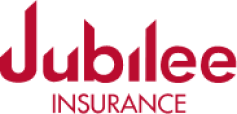Physical Activity to Combat the Scourge of Lifestyle-related Illnesses
By Angela Nanyaro
Claims and Wellness Manager, Jubilee Health Insurance
The escalating prevalence of non-communicable diseases such as heart disease, diabetes, obesity and various cancers continues to pose significant health challenges in Tanzania and across the world.
In the face of this burgeoning health crisis, the adoption of physical activity offers a promising avenue to combat this scourge and significantly enhance health outcomes. The World Health Organization defines physical activity as any bodily movement produced by skeletal muscles that requires energy expenditure. This includes both moderate and vigorous intensity physical activity that can be done at any level of skill to improve our health.
According to World Health Organization, children and adolescents aged between 5 to 17 years should do at least an average of 60 minutes of moderate to vigorous exercise intensity across the week. Additionally, individuals aged 18 years and above should do at least 150- 300 minutes of physical activity throughout the week.
Regular physical activity has been proven to help prevent and manage noncommunicable diseases, maintain healthy body weight, improve mental health and the overall quality of life and well-being.
Despite the benefits of physical activity, one in four adults and 81 per cent of adolescents do not meet the recommended physical activity levels. This inactivity poses health risks while impacting productivity and economic factors such as healthcare costs.
In order to address the prevalence of lifestyle-related illnesses, we must all challenge the notion that physical activity is inherently stressful and time-consuming. Instead of associating physical activity with gym memberships and rigorous routines, we must identify practical and sustainable ways to seamlessly weave in exercise into our daily lives.
Embracing activities such as cycling, going for a walk, taking the stairs or incorporating short bursts of exercise into household chores will demonstrate that achieving physical well-being does not have to be overwhelming.
At Jubilee Health Insurance, we recognize the multifaceted benefits of an active lifestyle. Hence, we are committed to promoting physical activity among our clients and the community. Last year, our company launched “Do Anything For The Steps” Campaign to encourage our customers and the public to incorporate exercise into their daily routines while rewarding individuals who exercise regularly with discounts and cashbacks on their health insurance premiums. Our company is also actively sponsoring community fitness events in line with WHO’s Global Action Plan on Physical Activity 2018–2030. These initiatives are fostering a culture of movement for improved public health.
Secondly, reversing the prevalence of lifestyle-related illnesses will require a concerted effort in health education about the impact of physical activity on our health and overall well-being. These educational initiatives will empower people to adopt active and healthy lifestyles and mitigate the risks associated with sedentary behaviours. Additionally, such campaigns will go a long way in driving behavioural change and attaining a healthier future through informed and active living.
Jubilee Health Insurance will continue to deploy campaigns that educate and empower our customers and the community on preventative and curative health.
In conclusion, physical activity is not just a choice; it’s essential for a healthier society. Our company is dedicated to cultivating a culture of activity to reduce healthcare costs, improve quality of life, and enhance mental well-being. Our “Do Anything For The Steps” Campaign and other initiatives are significant steps towards WHO’s vision of “more active people for a healthier world.”
Together, we’re paving the way for a healthier, happier tomorrow.






